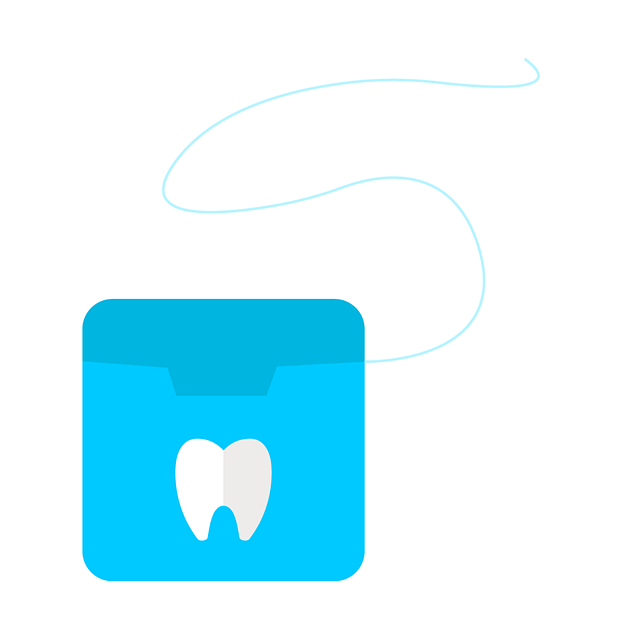Understanding Orthodontists: Your Wisdom Teeth Extraction Explained!
Welcome to our informative article, where we will delve into the world of orthodontists and provide a comprehensive understanding of a commonly undergone procedure – wisdom teeth extraction! If you’ve ever wondered what wisdom teeth are, why they can cause problems, and how an orthodontist can help, you’ve come to the right place. We’ll explain the ins and outs of wisdom teeth extraction in a friendly and easy-to-grasp manner, ensuring you’re armed with all the knowledge you need before considering this dental procedure. So, sit back, relax, and get ready to venture into the realm of orthodontics and wisdom teeth extraction!
1. What Are Wisdom Teeth and Why Do They Need to Be Extracted?
Wisdom teeth, also known as third molars, are the final set of molars to emerge in the back of the mouth. Most people have four wisdom teeth, with two on the upper jaw and two on the lower jaw. These teeth typically start to emerge between the ages of 17 and 25, long after the rest of the adult teeth have already settled into place.
Although wisdom teeth can be beneficial if they are properly aligned and have enough space to grow in, unfortunately, this is often not the case. Due to the limited space in the mouth, wisdom teeth can become impacted or trapped beneath the gum line. This can lead to various oral health issues such as:
- Infection: Partially erupted wisdom teeth can create a small opening in the gum where bacteria can enter, leading to infection and swelling.
- Decay: Because wisdom teeth are positioned at the back of the mouth, they can be difficult to clean properly. As a result, they are more prone to decay and cavities.
- Crowding: Wisdom teeth can exert pressure on existing teeth as they try to emerge, causing overcrowding and shifting of the adjacent teeth.
If left untreated, these complications can cause significant pain and affect the overall health of your mouth. Therefore, it is often necessary to have wisdom teeth extracted to prevent these problems from occurring or worsening.

2. The Role of Orthodontists in Wisdom Teeth Extraction
When it comes to wisdom teeth extraction, orthodontists play a crucial role in ensuring a smooth and successful procedure. With their specialized training and expertise, orthodontists are equipped to handle the complexities that can arise during this process.
Here’s what you need to know about :
- Evaluating tooth positioning: Orthodontists are skilled in analyzing the position of wisdom teeth to determine if they are causing or have the potential to cause issues such as overcrowding, misalignment, or impaction. They use X-rays and other diagnostic tools to assess the teeth and surrounding structures, enabling them to make informed decisions about whether extraction is necessary.
- Creating a treatment plan: If extraction is deemed necessary, orthodontists will develop a personalized treatment plan based on the individual’s specific needs. This plan takes into account factors such as the number and position of the wisdom teeth, the patient’s oral health, and any existing orthodontic treatment. They will discuss the procedure in detail, answer any questions, and provide guidance on pre- and post-operative care to ensure a smooth recovery.

3. Understanding the Process: Preparing for Wisdom Teeth Removal
Preparing for wisdom teeth removal can feel overwhelming, but knowing what to expect can help ease your worries. Here are some essential steps and tips to ensure a smooth process:
Gather Information:
- Schedule a consultation with your dentist or oral surgeon to discuss the procedure in detail and address any concerns.
- Ask about the type of anesthesia that will be used during the surgery, as well as the estimated recovery time.
- Inquire about any preoperative instructions, such as fasting requirements or medication adjustments.
Plan Ahead:
- Arrange for someone to drive you home after the procedure, as you may still feel groggy from the anesthesia.
- Stock up on soft foods like yogurt, soup, and smoothies, as you’ll need to stick to a gentle diet during the initial healing phase.
- Opt for loose and comfortable clothing on the day of the surgery to ensure a relaxed experience.
By understanding the process and taking necessary preparations, you’ll be well-equipped to face your wisdom teeth removal with confidence and minimal stress.

4. Step-by-Step: How Orthodontists Extract Wisdom Teeth
When it comes to wisdom teeth extraction, orthodontists follow a detailed step-by-step procedure to ensure a smooth and comfortable experience for their patients. Here’s an overview of how orthodontists extract wisdom teeth:
Anesthesia: Before the extraction process begins, the orthodontist will administer local anesthesia to numb the area around the wisdom teeth. This helps to minimize any discomfort or pain during the procedure.
- The orthodontist may also offer sedation options, such as nitrous oxide (laughing gas) or intravenous (IV) sedation, for patients who may be anxious or require a more relaxed state.
Incision: Once the anesthesia has taken effect, the orthodontist will make a small incision in the gum tissue to expose the wisdom tooth and underlying bone. This allows for better access to the tooth for extraction.
- The incision is made using precise tools and techniques to ensure minimal damage to the surrounding tissues.
- The gum tissue may be gently pushed aside or retracted using a dental tool, giving the orthodontist clear visibility and access to the wisdom tooth.

5. Sedation Options: Easing Your Anxiety during Wisdom Teeth Removal
Having your wisdom teeth removed can be a daunting experience, especially if you have anxiety or fear associated with dental procedures. The good news is that there are various sedation options available to help ease your anxiety and make the process as comfortable as possible.
1. Nitrous Oxide: Also known as laughing gas, nitrous oxide is a common sedation option used during dental procedures. It is inhaled through a mask that is placed over your nose, allowing you to feel relaxed and at ease throughout the procedure. Nitrous oxide is safe and wears off quickly, allowing you to resume your usual activities shortly after the treatment.
2. Oral Sedation: Another option to consider is oral sedation, which involves taking a prescribed medication before your wisdom teeth removal. This form of sedation helps you relax and may even make you feel drowsy. It is essential to follow your dentist’s instructions regarding fasting and transportation arrangements when opting for oral sedation. Your dentist will determine the appropriate dosage based on your medical history and anxiety level.
6. Managing Pain and Discomfort after Wisdom Teeth Extraction
After wisdom teeth extraction, it is common to experience pain and discomfort. However, with proper care and management, you can minimize your discomfort and speed up the healing process. Here are some tips to help you manage pain and discomfort effectively:
- Take pain medication: Your dentist or oral surgeon will prescribe pain medication to alleviate any discomfort after the extraction. Take the medication as directed, and if the pain persists or worsens, be sure to contact your dentist.
- Apply ice packs: Applying an ice pack to the outside of your cheek for 15 minutes at a time can help reduce swelling and numb the area, assisting in pain relief.
- Follow proper oral hygiene: Although you may be hesitant, it is essential to gently brush your teeth and tongue, ensuring you do not disturb the extraction site. Rinse your mouth with a saltwater solution (1/2 teaspoon of salt mixed with 8 ounces of warm water) at least four times a day to clean the area and promote healing.
Furthermore, it is important to avoid certain activities that may exacerbate pain or hinder the healing process. Here are some precautions to take:
- Avoid smoking or using straws: These actions can dislodge blood clots and delay healing.
- Avoid hard or chewy foods: Stick to soft foods like soups, mashed potatoes, and smoothies for the first few days.
- Avoid touching the extraction site: Do not poke or prod the area with your tongue, fingers, or any objects, as this can lead to infection or additional pain.
7. Potential Complications: What to Expect and How Orthodontists Address Them
While orthodontic treatment is generally safe and effective, it is important to be aware that there can be potential complications along the way. Don’t worry though, orthodontists are well-equipped to handle these complications and ensure your treatment goes smoothly. Here are a few common issues that may arise and how orthodontists address them:
- Tooth Discomfort: Some discomfort or mild pain is normal after adjustments or when wearing new aligners, as your teeth are gradually moving into the desired position. Over-the-counter pain relievers can help alleviate this discomfort. Additionally, orthodontists may provide dental wax to apply on braces that are causing irritation to the gums or cheeks.
- Mouth Sores: Occasionally, the hardware of braces can cause small sores or ulcers in your mouth. Orthodontists can provide special oral rinses to promote healing, or they may recommend using orthodontic wax or silicone covers to create a barrier between the braces and the sensitive areas of your mouth.
- Loose or Broken Braces: Sometimes brackets, wires, or bands may become loose or break, particularly if you eat hard or sticky foods that are prohibited during treatment. If this happens, don’t panic! Orthodontists have emergency appointments to fix these issues, and they’ll provide guidance on what to do until your appointment.
Remember, every individual’s orthodontic journey is different, and these complications can vary in occurrence and severity. Orthodontists are highly skilled professionals who will guide you through the process, keeping your comfort and safety as their top priority. If you experience any concerns or have questions about potential complications, reach out to your orthodontist’s office for personalized advice.
8. Post-Extraction Care: Tips for a Speedy Recovery and Preventing Infections
After getting a tooth extraction, proper care is crucial for a smooth and speedy recovery. Follow these helpful tips to ensure a healthy healing process and minimize the risk of infections:
- Be gentle with the area: Avoid touching the extraction site with your tongue or fingers and refrain from vigorous rinsing.
- Control bleeding: Bite down gently on a clean gauze pad to reduce bleeding. Replace the gauze when it becomes soaked, typically every 30–45 minutes.
- Manage swelling: To minimize swelling, apply an ice pack or a cold compress to your cheek for 10-20 minutes at a time during the first 24 hours.
- Take prescribed pain medications: If your dentist prescribed pain relievers, take them as directed to manage any discomfort post-extraction.
Additionally, here are some more tips to promote a swift recovery and prevent infections:
- Avoid smoking: Smoking hinders the healing process and increases the risk of infection. It’s best to refrain from smoking for at least 48 hours after the extraction.
- Maintain oral hygiene: Gently brush your teeth and tongue, being cautious around the extraction site. Avoid using mouthwash for the first 24 hours and rinse gently with warm saltwater after that.
- Stick to a soft food diet: Opt for soft and nutritious meals like yogurt, mashed potatoes, smoothies, and soups. Avoid hot, spicy, or crunchy foods which may irritate the extraction site.
- Attend follow-up appointments: Ensure you visit your dentist for any recommended follow-up visits to monitor your healing progress and address any concerns.
9. Frequently Asked Questions about Wisdom Teeth Extraction: Expert Answers
If you have been told that it’s time to remove your wisdom teeth, you probably have a few questions. Don’t worry, we’ve got you covered! To help ease any concerns you may have, here are answers to some frequently asked questions about wisdom teeth extraction:
- Why do wisdom teeth need to be removed? Wisdom teeth often don’t have enough space to fully emerge or develop properly, leading to potential complications such as infection, pain, tooth crowding, and damage to adjacent teeth.
- When should I have my wisdom teeth removed? It is typically recommended to have wisdom teeth removed during your late teens or early twenties when the roots are not fully formed, making extraction easier and reducing the risk of complications.
- Is wisdom teeth extraction painful? The procedure itself is usually done under anesthesia, so you won’t feel any pain during the surgery. However, some discomfort and swelling may occur afterward, but your dentist will provide medication and tips to manage any discomfort.
- How long does it take to recover from wisdom teeth extraction? Each person’s recovery time can vary, but on average, it takes about a week to fully recover. During this time, it’s important to follow your dentist’s instructions for proper care and maintain a soft food diet.
- What are the potential risks of not removing wisdom teeth? If left untreated, impacted or misaligned wisdom teeth can cause various issues, including infection, damage to nearby teeth, development of cysts or tumors, and even the shifting of your natural teeth.
- Can I drive home after the extraction? As the anesthesia used during the procedure may impair your ability to drive, it’s highly recommended to arrange for a responsible adult to drive you home safely.
10. The Importance of Regular Dental Check-ups and Early Wisdom Teeth Evaluation
Regular dental check-ups and early wisdom teeth evaluation are essential for maintaining good oral health. These practices help prevent serious dental issues and ensure early intervention when necessary. Here are a few reasons why these check-ups and evaluations should be a part of your routine:
1. Detecting dental problems early: Regular dental check-ups allow dentists to identify dental issues at their earliest stages. This includes cavities, gum disease, and even oral cancer. By catching these problems early, treatment becomes easier and less invasive.
2. Maintaining healthy teeth and gums: Regular check-ups are crucial for maintaining optimal oral health. During these visits, your dentist will thoroughly clean your teeth, removing any plaque or tartar buildup that cannot be removed through regular brushing and flossing. This helps prevent gum disease and keeps your teeth looking and feeling their best.
3. Addressing wisdom teeth concerns: Wisdom teeth, also known as third molars, usually emerge in late adolescence or early adulthood. However, these teeth often cause issues such as overcrowding, impaction, and misalignment. Early evaluation allows your dentist to assess if these teeth need to be extracted or monitored closely.
4. Preventing chronic bad breath: Regular dental check-ups can also help address the underlying causes of halitosis (bad breath). Dentists can identify oral hygiene issues, gum disease, and other factors that contribute to chronic bad breath, providing appropriate treatment recommendations.
5. Saving money in the long run: By scheduling regular check-ups, you can avoid costly dental procedures that may arise from neglecting your oral health. Preventive care is often more affordable than treating advanced dental issues, making regular check-ups a wise investment in the long run.
By making regular dental check-ups and early wisdom teeth evaluation a priority, you can maintain a healthy mouth and prevent potential oral health complications. Remember, prevention is key, and your dentist is your partner in ensuring your smile stays bright and healthy for years to come!
Frequently Asked Questions
Q: What is an orthodontist and why might I need to see one?
A: An orthodontist is a specialized dental professional who focuses on the diagnosis, prevention, and treatment of dental and facial irregularities. If you require corrective measures for misaligned teeth, overcrowding, overbites, underbites, or other orthodontic issues, you can visit an orthodontist for personalized treatment options.
Q: Why might I need to have my wisdom teeth extracted?
A: Wisdom teeth, also known as third molars, typically emerge between the ages of 17 and 25. For many individuals, these teeth can cause problems due to lack of space in the mouth. Wisdom teeth often grow in crooked, partially emerge, or get impacted (trapped below the gum line). To prevent pain, infections, damage to adjacent teeth, or shifting of existing teeth, it is often recommended to have these troublesome teeth removed.
Q: What should I expect during a wisdom teeth extraction procedure?
A: Prior to your wisdom teeth extraction, your orthodontist will conduct a thorough examination, including X-rays, to determine the best approach for your unique situation. The extraction itself is typically performed under local anesthesia, ensuring you remain comfortable throughout the procedure. If necessary, your orthodontist may choose to provide you with sedation options to help you relax.
Q: Are there any risks or complications associated with wisdom teeth extraction?
A: As with any surgical procedure, there are some potential risks involved, although they are relatively rare. Common complications include pain, swelling, bleeding, infection, dry socket (when the blood clot is dislodged), or nerve damage, although these occurrences are typically minimal and manageable. Following your orthodontist’s post-op instructions will greatly reduce the likelihood of experiencing any complications.
Q: How long does the recovery process typically take?
A: The recovery time after a wisdom teeth extraction varies from person to person. Generally, you can expect some swelling and discomfort for a few days, but these symptoms usually subside within a week. Your orthodontist will provide you with detailed aftercare instructions, such as recommended pain relief medications, dietary restrictions, and oral hygiene practices to promote proper healing.
Q: Will removing my wisdom teeth affect my other teeth?
A: Wisdom teeth are often removed to prevent potential problems with adjacent teeth. In fact, not removing impacted wisdom teeth can lead to crowding, shifting, and damage to surrounding teeth. By removing these troublesome molars, you can maintain the alignment and overall health of your existing teeth.
Q: Is there an optimal age to have wisdom teeth extracted?
A: The ideal age for wisdom teeth extraction can vary from person to person. However, it is generally recommended to have them removed during late teenage years or early twenties, before the roots fully develop and the teeth present potential complications. Your orthodontist will assess your unique situation and advise on the best time for extraction.
Q: Can I drive home after the extraction procedure?
A: If your procedure involves the use of sedation or general anesthesia, you will not be able to drive immediately afterward. It is strongly suggested that you arrange for someone to drive you home and keep an eye on you during the initial recovery period. Following the procedure, you may feel groggy or slightly disoriented, so it’s important to prioritize safety and have someone assist you.
Conclusion
In conclusion, gaining a deeper understanding of orthodontists and the wisdom teeth extraction process is essential for maintaining optimal oral health. We have explored the important role orthodontists play in assessing and addressing wisdom teeth-related problems, as well as how the extraction procedure is carried out. By partnering with a trusted orthodontist, you can confidently navigate this dental journey, ensuring a smoother and more comfortable experience.
Remember, wisdom teeth extraction is a routine procedure that aims to prevent future complications and maintain the overall alignment and health of your teeth. If you have concerns about your wisdom teeth or are experiencing any discomfort, don’t hesitate to consult with your orthodontist. They are equipped with the knowledge and expertise to guide you through every step of the way.
Taking care of your oral health is an investment in your overall well-being. Regular dental check-ups and proactive measures, like addressing wisdom teeth issues in a timely manner, will help you maintain a beautiful and healthy smile for years to come. So, put your worries aside, consult an orthodontist, and take control of your oral health today!
We hope this article has shed light on the fascinating world of orthodontics and the wisdom teeth extraction process. Armed with this information, you are better prepared to make informed decisions about your dental care and embark on your journey towards a brighter, healthier smile. Stay curious and proactive in your oral health, and remember, your orthodontist is always there to help you achieve the smile you deserve. Here’s to a lifetime of dental well-being!






